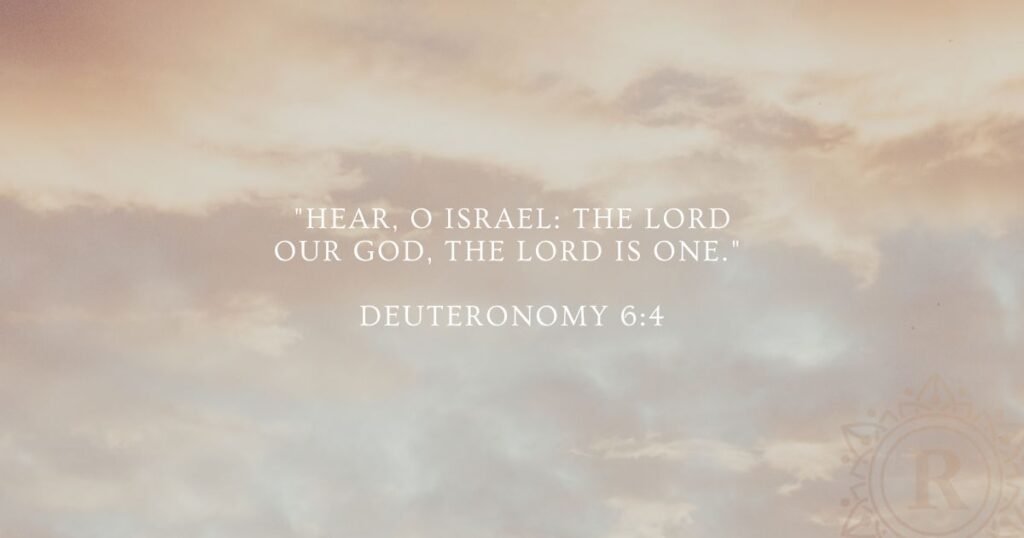I’m starting a series of short articles for a discipleship program of today’s churches. In a previous article, we discussed the existence and knowability of God. He exists and made Himself known through revelation—through creation and Scripture.
Although we can’t fully and exhaustively know God, we can gain a true and increasing knowledge of Him. As Deuteronomy 29:29 puts it, “The secret things belong to the LORD our God, but the things that are revealed belong to us and to our children forever…” While we study God and the things of God, some mysteries will remain—and that’s okay. That’s expected.
Still, God Himself desires that we know Him truly and personally. And He gave us the Scripture to reveal what and who He is as the God and Savior who reigns over all and is all in all.
What and Who God Is
The Bible is full of words that describe God. We can read this explicitly, such as when God revealed Himself more intimately to Moses and said, “The LORD, the LORD, a God merciful and gracious, slow to anger, and abounding in steadfast love and faithful…” (Exodus 34:6). Sometimes, it’s implied in the text. For instance, when we consider the story of creation in Genesis 1 or the spread of the church in the book of Acts, we conclude that God is a powerful God and Someone faithful to His word.
Now, the Bible presents numerous words “attributed” to God, including power, goodness, justice, etc. But a good summary of these “attributes” are found in a public confession of faith used by the church throughout the past centuries, namely the Belgic Confession.
The Article 1 of this confession beautifully puts it this way:
We all believe in our hearts
and confess with our mouths
that there is a single
and simple
spiritual being,
whom we call God—
eternal,
incomprehensible,
invisible,
unchangeable,
infinite,
almighty,
completely wise,
just,
and good,
and the overflowing source of all good.
Now, let’s unpack and expound this statement of the biblical faith concerning God.
The Being of God
The first part of Belgic Confession Article 1 highlights the being or essence of God. When we talk about “being” or “essence,” it deals with the “whatness” of the being. It pertains to what makes the being precisely what it is.[1] For instance, you and I are what? We are human beings; we are not animals. We are creatures or created beings; we are not creators. We create out of existing materials, but we are not creators in the same sense as God who created all things out of nothing.
God is a divine being, not a mortal one. He is the Creator, not a creature.
Now, the confession above points to 4 essential attributes concerning God’s being. Let’s focus on the first one—the singularity of God.
1. God is One
First, there is a “single” God. God exists independent of anything or anyone and there is no other god than himself.
His “self-existence” is also known as the “aseity” or “solitariness” of God. Again, in Genesis 1:1, it says, “In the beginning God…” Even before the beginning of time, when there was absolutely nothing created in time and space, God was already there. The rest of the universe needs a beginning, a source, or else it won’t exist at all (John 1:3).
But that’s not the case with God. He exists on his own.
God doesn’t need a source or creator. He is the Source and Creator. He’s the ultimate reality. While we derive our existence from Him, God doesn’t depend on anything or anyone to exist. Even if He chose not to create the universe and us, He would still be and always will be God.
This has important implications for us. Even if atheists deny God, people live as if there’s no God, or we reject God and His Word—He remains God and His truth remains the truth. Hence, the call to recognize and believe in God—particularly in His appointed mediator and savior Jesus Christ—is absolutely the most important.
At the same time, there is no other god. Deuteronomy 6:4 reads, “Hear, O Israel: The LORD our God, the LORD is one.” There’s only one Divine Being. That’s the reason the first commandment God gave to His people is, “You shall have no other gods before me” (Exodus 20:3). For there is none!
While people from various nations and cultures recognize different “gods”—these are not gods at all. They are just figments of human imaginations, created after the likeness and preference of sinful men and women. Consider the gods of Greek mythology, for instance. They are mere imaginary characters who represent the attitudes and conduct of people—including lust, immorality, betrayal, and abuse of power. Others bow down and worship their statues, which can neither see, talk, or even save (Psalm 135:15-18). These are hardly gods.
The God who revealed Himself in creation and especially to His people—through miracles and acts of redemption and His Word—is the one and only true God. There’s no one else like Him that exists.
Because of that reality, you and I should give all our worship, honor, praise, and allegiance to Him and Him alone.
[1] Richard Muller, “Essentia,” in Dictionary of Latin and Greek Theological Terms (Grand Rapid, MI: Baker Academic, 2017), 110.

